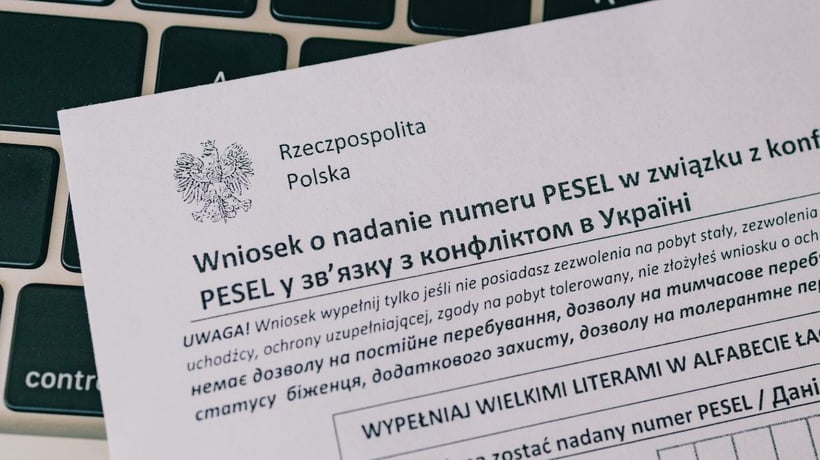How an EU citizen can bring his family to Poland
A citizen of the European Union (EU) has the right to move and settle freely in other EU member states, including Poland.
The process of bringing a family to Poland by an EU citizen is relatively simple, especially compared to the procedures for non-EU citizens. Below are the steps and requirements for this process:
1. Right to free movement
An EU citizen has the right to enter, stay and settle in Poland without obtaining a visa or residence permit. The EU citizen's family can join him or her on similar terms, but they must meet certain conditions and go through the appropriate administrative procedures.
2. Definition of family members
The family members of an EU citizen who can join him in Poland are:
- Spouse.
- Children (own or spouse's) under the age of 21 or dependent.
- Parents and in-laws who are dependent on the EU citizen or his spouse.
3. Documents needed to bring the family
In order for family members to join an EU citizen in Poland, they must present the following documents:
- A valid passport.
- Marriage certificate (for the spouse) or birth certificate (for the children), translated into Polish by a sworn translator.
- Documents confirming the financial dependency relationship (if applicable).
4. Procedure for declaring residence
Family members of an EU citizen should report their stay in Poland to the relevant provincial office within 90 days of arrival. This process includes:
- Registration of residence: For a planned stay of more than 3 months, family members should register their stay in Poland.
- EU citizen family member's residence card: After registering their stay, family members can apply for an EU citizen family member's residence card, which is valid for 5 years or for the period of the EU citizen's planned stay, if shorter.
5. Right to work and study
Family members of an EU citizen have the right to work, study and enjoy other social rights in Poland, such as health care or social benefits, on the same terms as Polish citizens.
6. Long-term residence
After 5 years of uninterrupted residence in Poland, family members may apply for the right to permanent residence. This requires filing the appropriate documents with the provincial office and proving uninterrupted residence in Poland.
Sample procedure for registration of residence
- Visit to the provincial office: Go to the provincial office appropriate to Your place of residence in Poland.
- Submission of application: Fill out and submit an application for registration of residence and issuance of a residence card for a family member of an EU citizen.
- Providing documents: Providing the required documents, such as a valid passport, marriage certificate or birth certificate, and proof of financial dependency relationship, if applicable.
- Awaiting a decision: After submitting the application, the provincial office will issue a decision on residence registration and issue a residence card for the EU citizen's family member.
The process of bringing a family member to Poland by an EU citizen is relatively simple and friendly, which aims to facilitate integration and promote the right to free movement and settlement in EU countries.
Procedure for bringing in a non-EU family member
- Visa for a non-EU family member: Before arriving in an EU country, a non-EU family member usually needs to obtain a visa. The type of visa can vary from country to country, but is usually a long-term visa or a Schengen visa if the stay is to be less than 90 days.
- A valid passport.
- Marriage certificate (for spouse) or birth certificate (for children).
- Proof of the importing person's EU citizenship (e.g., copy of passport).
- Proof of family relationship (e.g., documents proving financial dependency, if applicable).
- Arrival in an EU country: Afterobtaining a visa, a family member can come to an EU country. It is important to complete the formalities for legalization of residence within 90 days of arrival.
- Registering residence and obtaining a residence card The non-EU family member should register his or her residence with the appropriate foreigners' office (in Poland, this is the provincial office) and apply for a residence card.
- A valid passport.
- Proof of the family member's EU citizenship (e.g., a copy of the EU citizen's passport).
- Marriage certificate or birth certificate translated into the official language of the country (in Poland into Polish).
- Documents proving cohabitation or financial dependency, if applicable.
- Application process: The foreigners'office will process the application and, if all requirements are met, issue a residence card for the non-EU family member. This process can take anywhere from a few weeks to several months, depending on the country and Your specific situation.
Right to work and study
Non-EU family members who have obtained a residence card have the right to work, study and enjoy other social rights in an EU country, on the same terms as EU citizens.
Long-term residence
After several years of continuous residence (usually 5 years), a non-EU family member can apply for permanent residence. This requires submission of the appropriate documents and proof of uninterrupted legal residence.
Sample procedure for registering residency in Poland
- A visit to the provincial office: The non-EU family member should go to the provincial office responsible for the place of residence.
- Submission of application: Filling out and submitting an application for a residence card for an EU citizen family member.
- Providing documents: Providing the required documents, such as passport, marriage/birth certificate and proof of EU citizenship for the family member.
- Awaiting decision: Once the application is submitted, the office will process it and issue the residence card.
Bringing a non-EU family member to an EU country, including Poland, is a process involving certain formalities, but EU and national laws provide adequate procedures to facilitate the process and support the right to family life.
Any European Union citizen who intends to stay in Poland for more than 3 months is required to register their stay.
Registration should be carried out at the relevant provincial office within 3 months of arrival in Poland.
More information and current regulations are available on the website of the government's Office for Foreigners: https://www.mos.cudzoziemcy.gov.pl/en








